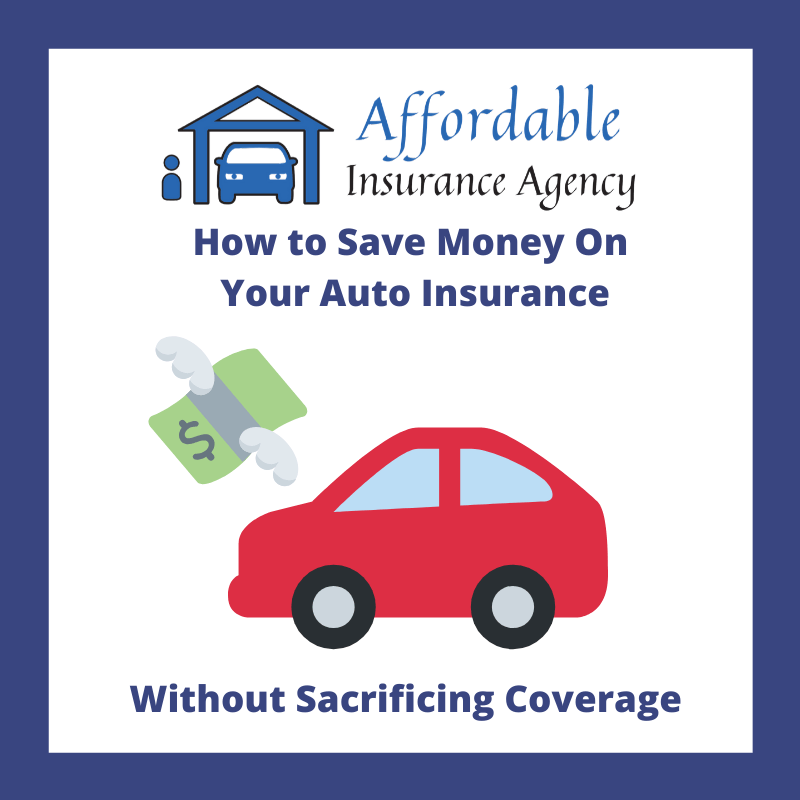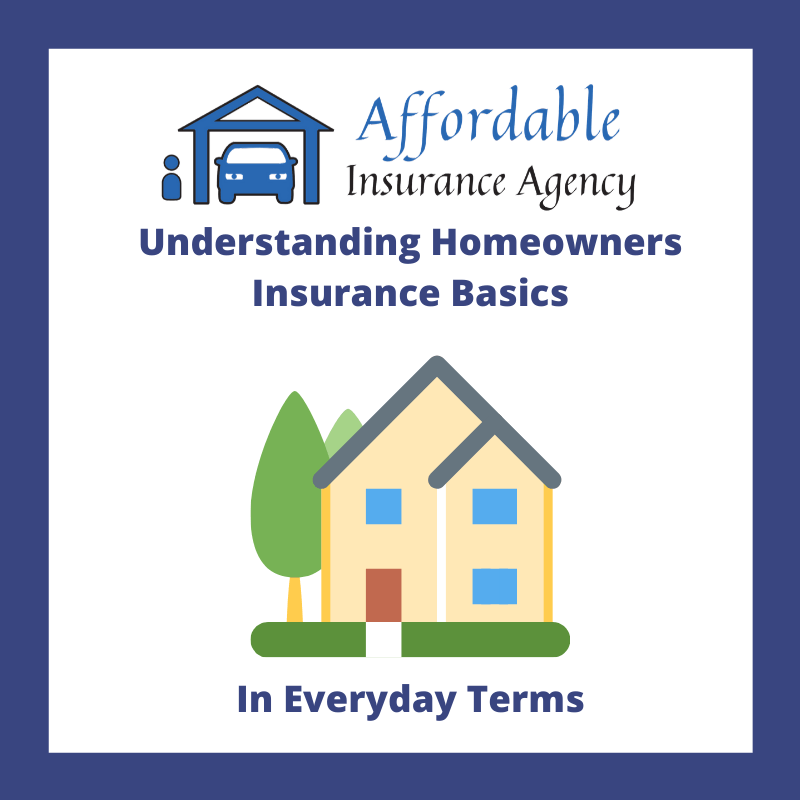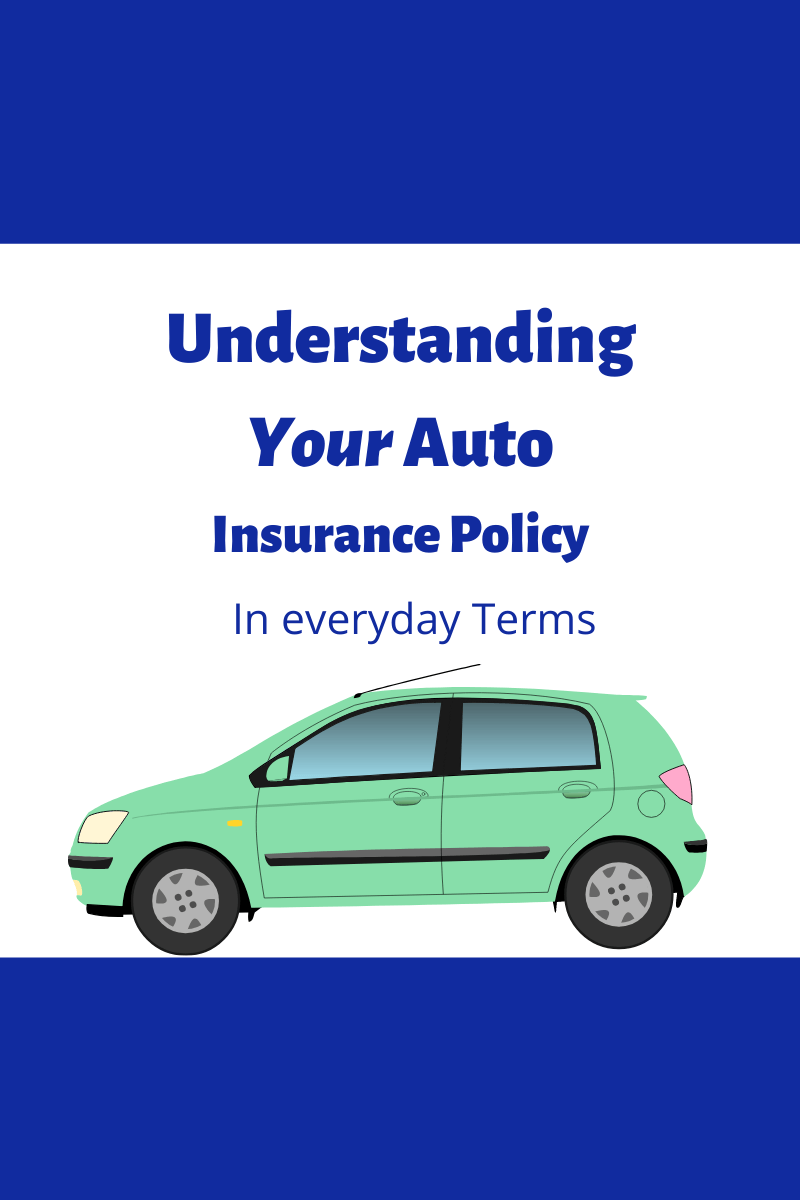Insuring Your Future, Insuring You Way Of Life
Affordable Insurance Tips

By Jennilee Bruynell
•
24 Jan, 2020
If you feel like you're paying too much for insurance, try to follow these tips below, it could save you hundreds. 1. Use An Independent Agent Shopping for car insurance with an independent agent can save you money because they will be able to quote the same coverage with multiple companies for you! Captive agents will only quote you with the one company they write, but here at Affordable we write insurance with over 10 companies, so we will be sure to get you the best rate for your insurance. Independent agents can also look out for special discounts for you to make sure that you are receiving all of the savings that you are entitled to. 2. Bundle Your Insurance Many insurers will give you a discount if you purchase two or more types of insurance from them—such as homeowners and auto—or have more than one vehicle insured. Make sure that you ask your agent about bundling if you own your home or are interested in renters insurance. Some companies even have bundle options for motorcycle and RV insurance as well. 3. Raise Your Deductible By choosing a higher deductible on your car insurance, you can significantly lower your premium costs. Of course, be sure you have enough money set aside to pay the higher deductible in the event you have a claim. 4. Maintain a good credit history Establishing a solid credit history has many benefits, including lower insurance costs. Many insurers use credit information to price auto insurance policies. (Research shows that people who effectively manage their credit make fewer claims). To be sure you’re getting the good credit you deserve, it’s a good idea to check your credit record on a regular basis to be sure all information is accurate. 5. Drive Safely This one seems obvious, but tickets, claims, and accidents will make your auto insurance rates go up immensely. Claims and tickets stay on your record for years and will drive up the cost of your insurance until they are removed. 6. Take a Defensive Drivers Course If you do get points on your license, or even just for the discount it can provide you, consider taking a defensive drivers course. This can get you a discount right away, and it can even help to take points off your license. Reach out to Affordable Insurance Agency for more information or a quote!

By Jennilee Bruynell
•
14 Jan, 2020
Homeowners insurance is a package policy. This means that it covers both damage to property and liability or legal responsibility for any injuries and property damage policyholders or their families cause to other people. This includes damage caused by household pets. Damage caused by most disasters is covered but there are exceptions. Standard homeowners policies do not cover flooding, earthquakes or poor maintenance. Flood coverage is provided by the federal government’s National Flood Insurance Program, although it is purchased from an insurance agent. Earthquake coverage is available either in the form of an endorsement or as a separate policy. Most maintenance related problems are the homeowners’ responsibility. A standard homeowners insurance policy includes four essential types of coverage. They include: 1. Coverage for the structure of the home This part of a policy pays to repair or rebuild a home if it is damaged or destroyed by fire, hurricane, hail, lightning or other disaster listed in the policy. It will not pay for damage caused by a flood, earthquake or routine wear and tear. Most standard policies also cover structures that are not attached to a house such as a garage, tool shed or gazebo. 2. Coverage for personal belongings Furniture, clothes, sports equipment and other personal items are covered if they are stolen or destroyed by fire, hurricane or other insured disaster. This means that belongings are covered anywhere in the world, unless the policyholder has decided against off-premises coverage. Expensive items like jewelry, furs and silverware are covered, but there are usually dollar limits if they are stolen. To insure these items to their full value, individuals can purchase a special personal property endorsement or floater and insure the item for its appraised value. 3. Liability protection Liability covers against lawsuits for bodily injury or property damage that policyholders or family members cause to other people. It also pays for damage caused by pets. The liability portion of the policy pays for both the cost of defending the policyholder in court and any court awards—up to the limit of the policy. Coverage is not just in the home but extends to anywhere in the world. Liability limits generally start at about $100,000. An umbrella or excess liability policy, which provides broader coverage, including claims for libel and slander, as well as higher liability limits, can be added to the policy.

By Jennilee Bruynell
•
17 Dec, 2019
Buying insurance can be difficult when you don’t understand all of the insurance terms and what the different coverages mean. Read this handy article to understand the basics of auto insurance! What is Liability Coverage? Liability coverage protects you from financial losses from an accident that you (or someone driving your car) may have caused. Auto insurance Liability is separated into two categories, 1. Bodily Injury Liability -this covers costs associated with injuries and death that you or another driver causes while driving your car. 2. Property Damage Liability — This coverage will reimburse others for damage that you or another driver operating your car causes to another vehicle or other property, such as a fence, building or utility pole. - Another term you may hear is Un/Underinsured Coverage - This reimburses you when an accident is caused by an uninsured or underinsured motorist—or in the case of a hit-and-run. New Jersey State Minimums for a standard policy are $15,000 Per Person and $30,000 Per Accident for bodily Injury Coverage and $5,000 for property damage. However, I often recommend seeking higher limits of liability in order to protect yourself and your assests in the event of an accident. Another coverage required by New Jersey mandatory insurance laws is Personal Injury Protection (PIP)- this provides reimbursement for medical expenses for injuries to you or your passengers. It will also cover lost wages and other related expenses. PIP has a coverage limit and a deductible. The NJ Limit is $15,000 with a $2,5000 deductible. Now lets discuss Full Coverage, because it may not mean what you think it does! Full coverage does not mean having high limits of liability, as many think it does. In fact, you can have standard state minimum coverage and still have full coverage. How is this possible? Well because having full coverage means that you have Comprehensive and Collision coverage. So, what does this mean? Basically, Comprehensive and Collision coverage protect only your vehicle if it were to be damaged , Collision Covers if it is damaged in an accident, and Comprehensive covers if it is damaged in another way, like a lightening strike, flood, or vandalism. In order to use your comprehensive and collision coverage, you must first pay your deductible. A deductible is the amount of money you pay to fix your car and then the insurance company pays the rest. Deductibles range generally from $250 to $2,000. Usually, the higher the deductible, the lower the premium because you will be bearing more of the risk. An example would be if your car is hit and it will cost $2,000 to replace it. If your deductible is $500, then your insurance company will pay $1,500, but if your deductible was $1,000 then you would pay $1,000 and your insurance company will also pay $1,000. Who is covered—and when? Your auto policy will cover you and other family members on your policy, whether driving your insured car or someone else’s car with permission. Your policy also provides coverage if someone not on your policy is driving your car with your consent. Your personal auto policy only covers personal driving, whether you’re commuting to work, running errands or taking a trip. Your personal auto policy, however, will not provide coverage if you use your car for commercial purposes—for instance, if you deliver pizzas or operate a delivery service. Note, too, that personal auto insurance will generally not provide coverage if you use your car to provide transportation to others through a ride-sharing service such as Uber or Lyft. Some auto insurers, however, are now offering supplemental insurance products (at additional cost) that extend coverage for vehicle owners providing ride-sharing services. Looking for more info or a quote? Call our office at 856-256-1033. We would love to hear from you!
FIND US IN PITMAN
Phone:
856-256-1033
Email: info@aiaofnj.com
Address: 250 N Woodbury Rd.
Pitman, NJ 08071
FIND US IN HADDON TOWNSHIP
Phone:
856-854-5665
Email: info@aiaofnj.com
Address: 2910 Mt. Ephraim Ave.
Haddon Township, NJ 08104
Content, including images, displayed on this website is protected by copyright laws. Downloading, republication, retransmission or reproduction of content on this website is strictly prohibited. Terms of Use
| Privacy Policy
